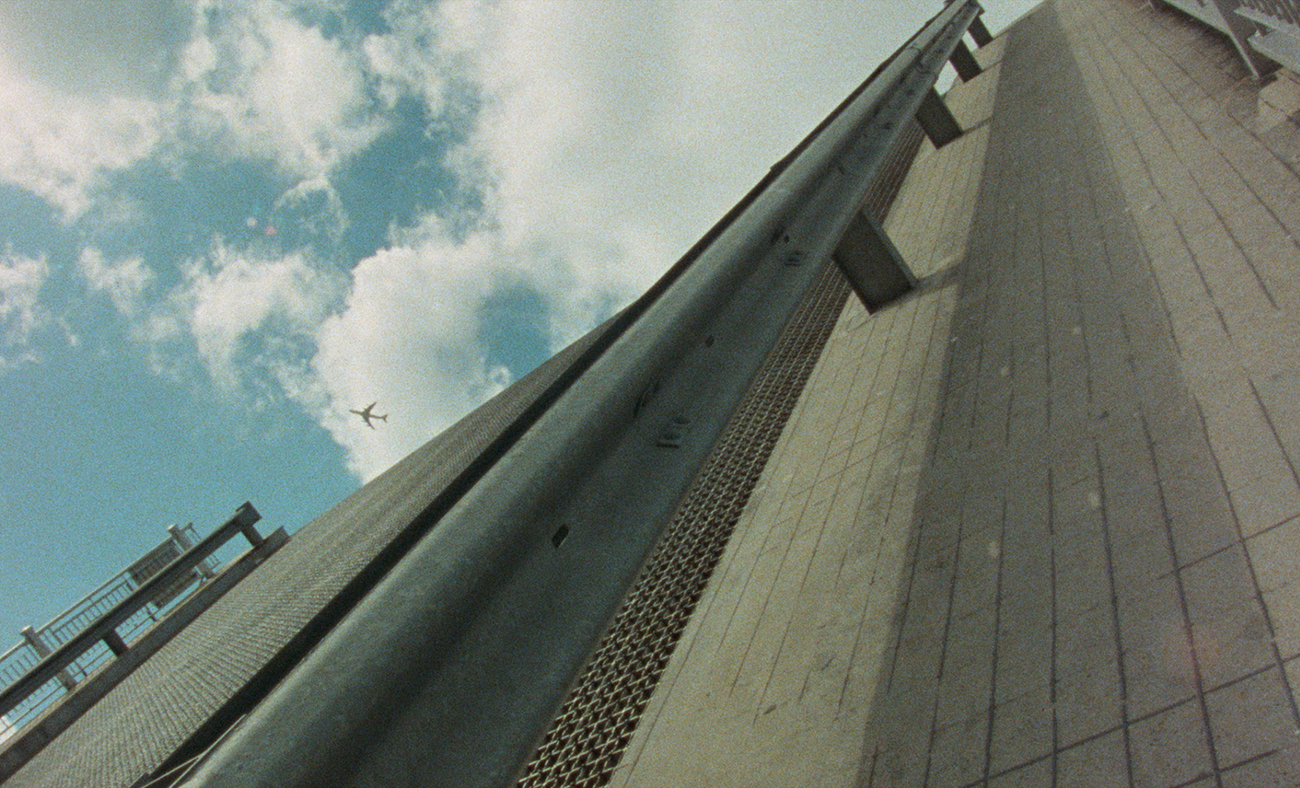
Echoes of Dissent
The title of this programme, The Murmur of the World, is taken from a piece of writing that critic Serge Daney devoted to Robert Kramer’s Route One/USA (1989). In this film fleuve, Kramer, together with companion and alter-ego Doc, makes a journey from the beginning of Route 1 in Maine to its end in Florida. Along the way, numerous spaces and encounters unfold, combining to form a previously unseen and unheard of picture of the US. In many ways, it is both a sequel to and counter-image of a film Kramer made more than a decade earlier: Milestones (1975). In this vast mosaic of a movie, he took stock of the political radicalism that had spread from the late 1960s onwards in the US and far beyond. With this film, he closed a period whose portrait he had drawn like no other. A disillusioned Kramer then headed to Europe where he found a new base. One need not be a Freudian to see that sooner or later he would return to his starting point.
“Route One/USA,” he said, “comes from a conscious decision to return to the scene of the crime. The interesting thing about this film is that in Milestones, we crossed the entire country without ever talking to anyone who was not part of our crew. Route One/USA was the exact opposite: we were there just to talk, listen and learn.” Serge Daney continued on that élan in his piece: what does a doctor traveling across the hinterland do, he asked. He uses his eyes and takes from his briefcase that old emblem, the stethoscope. He measures up the state of the populations, he takes their pulse. From the people he meets and listens to, along Route One, he expects no truth: he simply follows them through a phase of their existence. He diverts them slightly from their route, as if offering them a free consultation. He does not dramatise the road (it is the opposite of a road movie in that sense), nor the encounter: these people are always there and have other things to do. He feasts his eyes but doesn’t expect anything from them – and that’s exceptional – a voyeuristic added value. Above all, he puts his ear to the ground. Here, cinema par excellence functions as a social and political stethoscope that measures the pulsation of hearts and ideas and lets the murmur of the world, in all its diversity, be heard.
Twenty years later, another filmmaker, Tariq Teguia, measured up the state of his native land. In Gabbla (Inland, 2008), the main character is not a doctor but a topographer returning to the Algerian interior. This choice is no accident: the work of the surveyor – going into the field, looking through a lens, drawing lines – is reminiscent of that of a filmmaker. It also evokes a certain philosophical practice: in a famous text, Gilles Deleuze described Michel Foucault’s work as that of a novel cartographer. Teguia, whose film practice is indeed that of a cartographer, once wrote a master’s thesis on Foucault. Moreover, he devoted a PhD to Robert Frank – whose photo collection The Americans could be seen as a precursor to Route One/USA – under the title Fictions cartographiques. Fiction implies a certain idea of displacement, and it is indeed displacement that the film Gabbla applies to a territory – that of Algeria – which consists in undoing its dominant configuration and confronting, through image and sound, a multiplicity of Algerians. Beyond the official scenarios about the ‘Third World’ and ‘growth countries’, about neo-colonialism, Islamism, liberalism and globalisation, the film, through a form of aesthetic hospitality, inventories and collects different possibilities of life that give new visibility and audibility to the community.
This programme offers a selection of cartographic fictions in which a concatenation of recordings and encounters does not reveal an ultimate truth, but constitutes a possible constellation, as an exercise in togetherness in difference. Fictions that accommodate a multiplicity of voices, languages, geographical and sonic territories, and, as one of the characters in Gabbla suggests, make different islands into an archipelago, taking all the possibilities of life inherent in each to their utmost eloquence.
Full program here.